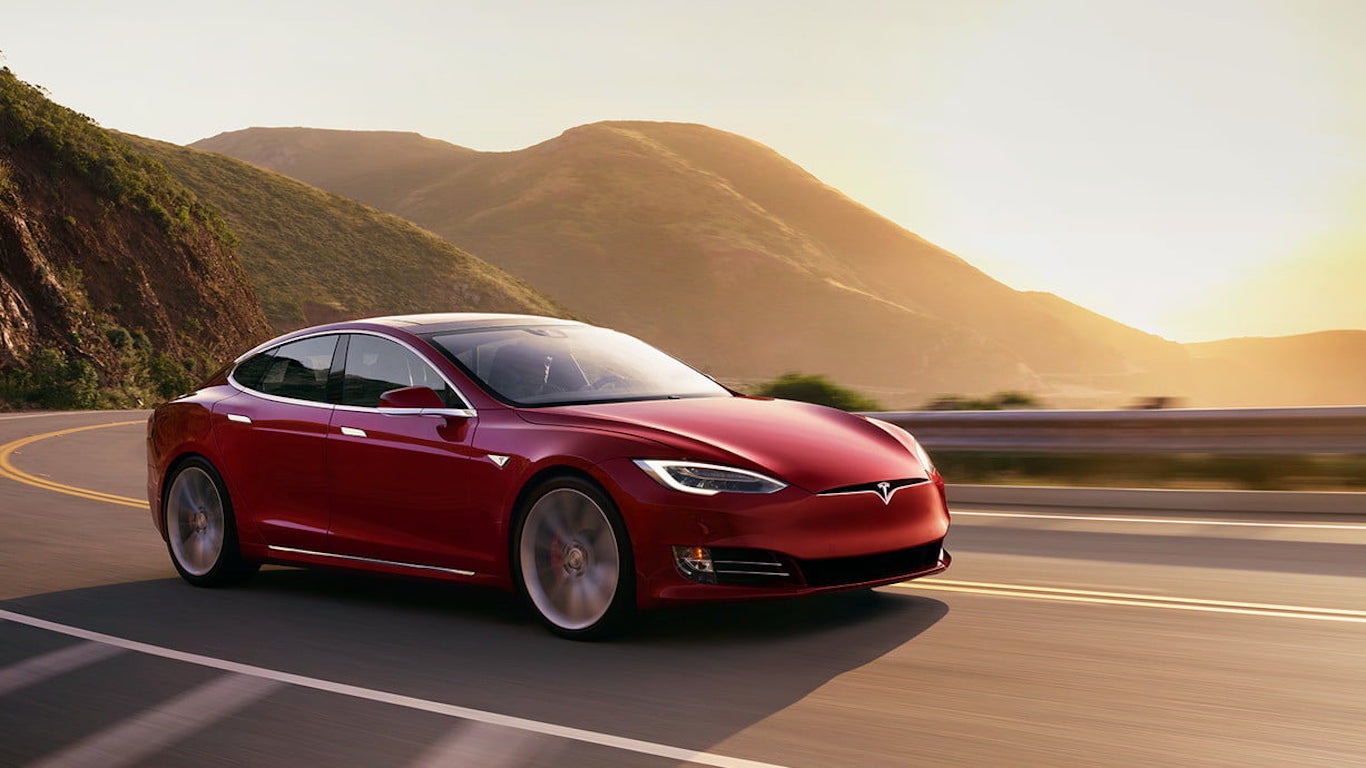
Those feeling as if they are paying more for car insurance are not wrong. Car insurance premiums rose by more than 20% between 2011 and 2018 to a national annual average premium of $1,427. All signs suggest rates will continue to rise in the near future.
The amount Americans pay for car insurance depends on many factors, including driver age, driving record, and location. Of course, the kind of vehicle also makes a big difference in insurance costs.
The Insurance Institute for Highway Safety, a nonprofit research organization funded by auto insurers, collects data on insurance claim frequency and insurance cost per vehicle. In a given year, insurance companies make claim payments of roughly $964 on average per vehicle. This is an average — so while insurers pay zero dollars for vehicles that go without incident in a given year, they might pay over $20,000 or more for vehicles involved in accidents or other events.
Insurers use average insurance claim payment as the basis for charging premiums, charging consumers more, of course, to make a profit. If models have a higher average insurance claim payment, insurers transfer the higher expected costs to the consumer. If the model has lower and less frequent payments, insurers will often charge lower premiums.
Some vehicles get into more accidents, and some have higher payouts per accident. On some models, insurers pay an average claim payment that is less than $600, while on others the payments are more than double. 24/7 Wall St. reviewed the 25 cars with the highest annual cost to insurers. In the case of duplicates, we only listed the version of the model with the highest insurance cost. We also excluded those vehicles where a relative cost figure was not included by IIHS for all six payout categories: collision, property damage, comprehensive, personal injury, medical payments, and bodily injury.
Generally, more expensive models tend to require higher insurance payouts in categories related to damage repair, in particular when covering collision costs. Close to half of the 25 cars with the highest insurance costs are luxury vehicles or sports cars, compared to just three of the 25 cars with the lowest insurance costs.
In addition to price, the size of the vehicle appears to be a major determinant of insurance payouts. Many of the vehicles with low insurance claim payments are large and midsize SUVs. Such cars tend to have low personal injury, medical, and bodily injury insurance payouts, likely the result of being safer. While 17 of the 25 cars with the lowest annual insurance costs are SUVs, minivans, or pickup trucks, just two of the 25 cars with the highest insurance premiums are. Several of the least expensive cars to insure are among the safest cars in America.
Click here to see the 25 most expensive cars to insure
Click here to read our methodology
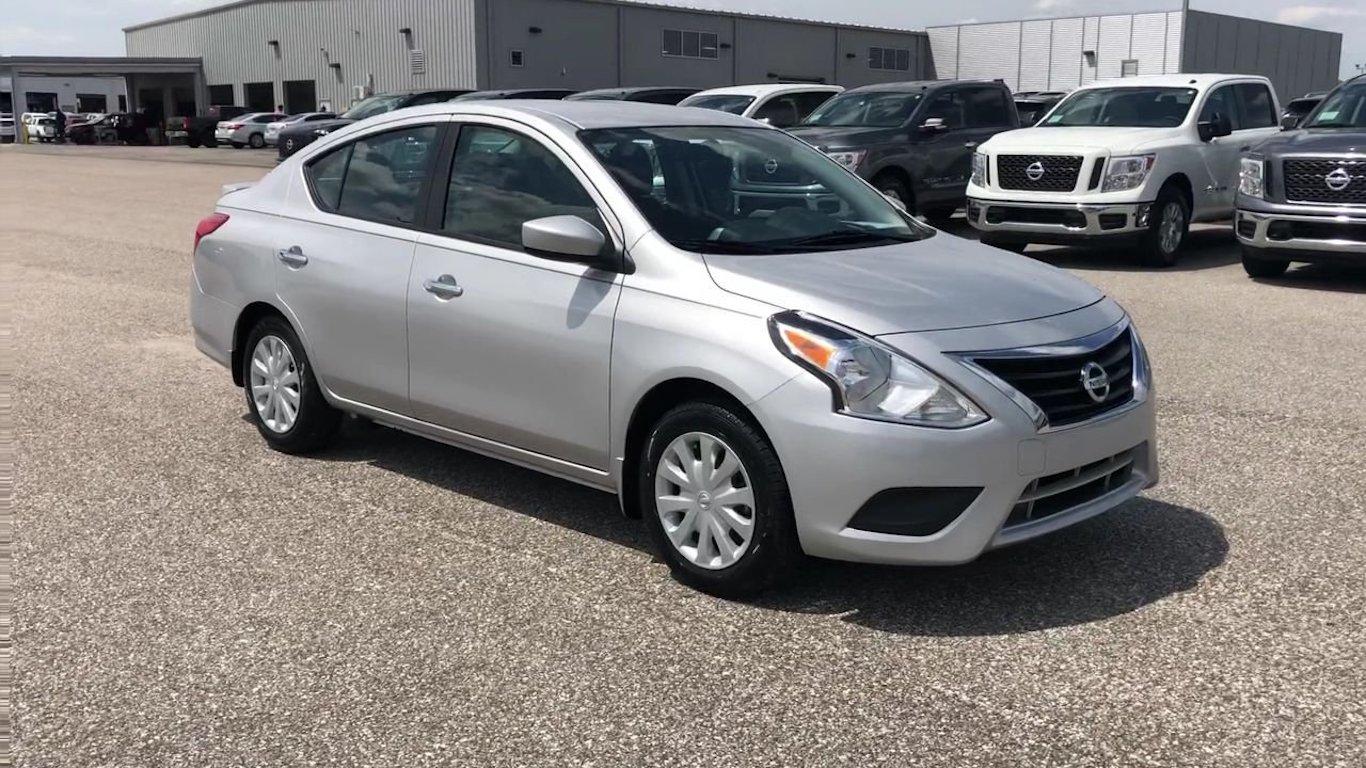
25. Nissan Versa
> Annual average cost to insurer: $1,271
> Annual average collision cost to insurer: $481
> Type: Small four-door
> Current model retail price: $12,460 – $16,090
[in-text-ad]
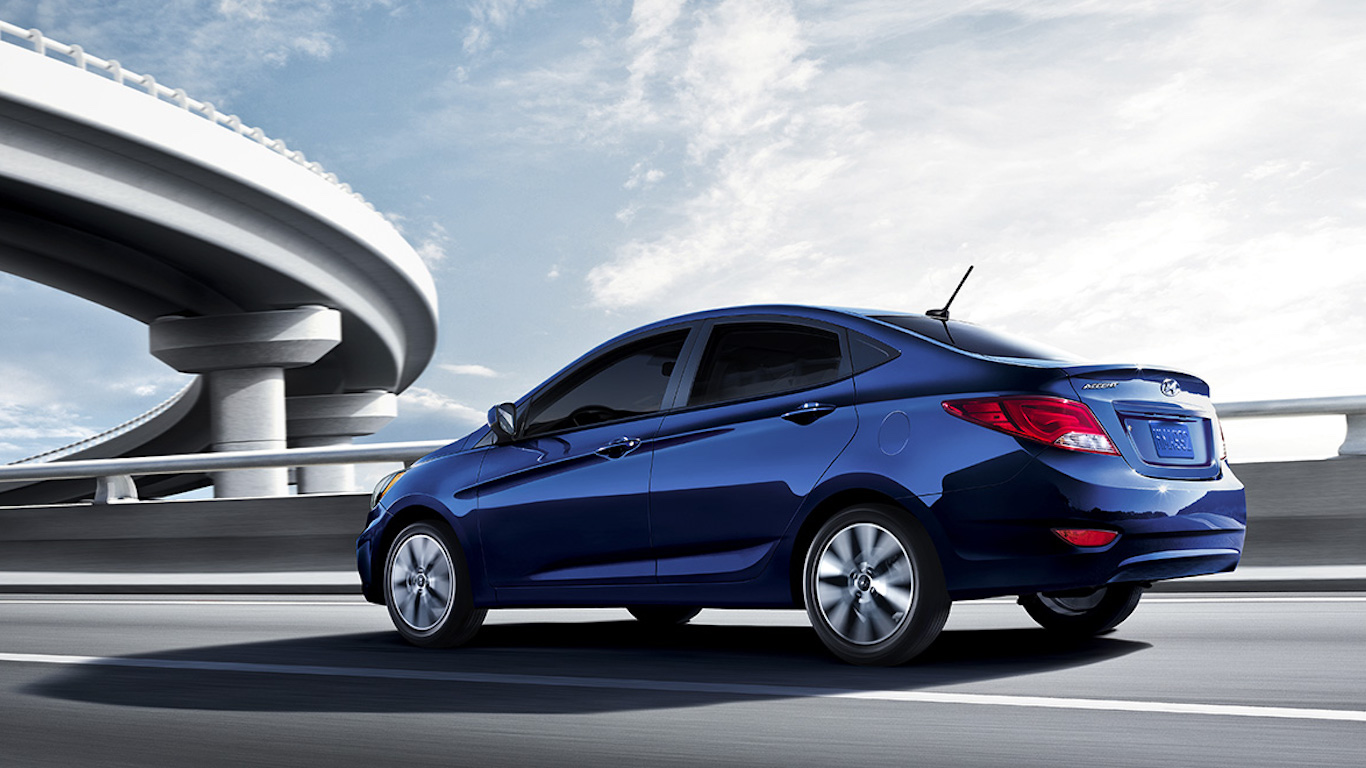
24. Hyundai Accent
> Annual average cost to insurer: $1,279
> Annual average collision cost to insurer: $452
> Type: Mini four-door
> Current model retail price: $14,995 – $19,080
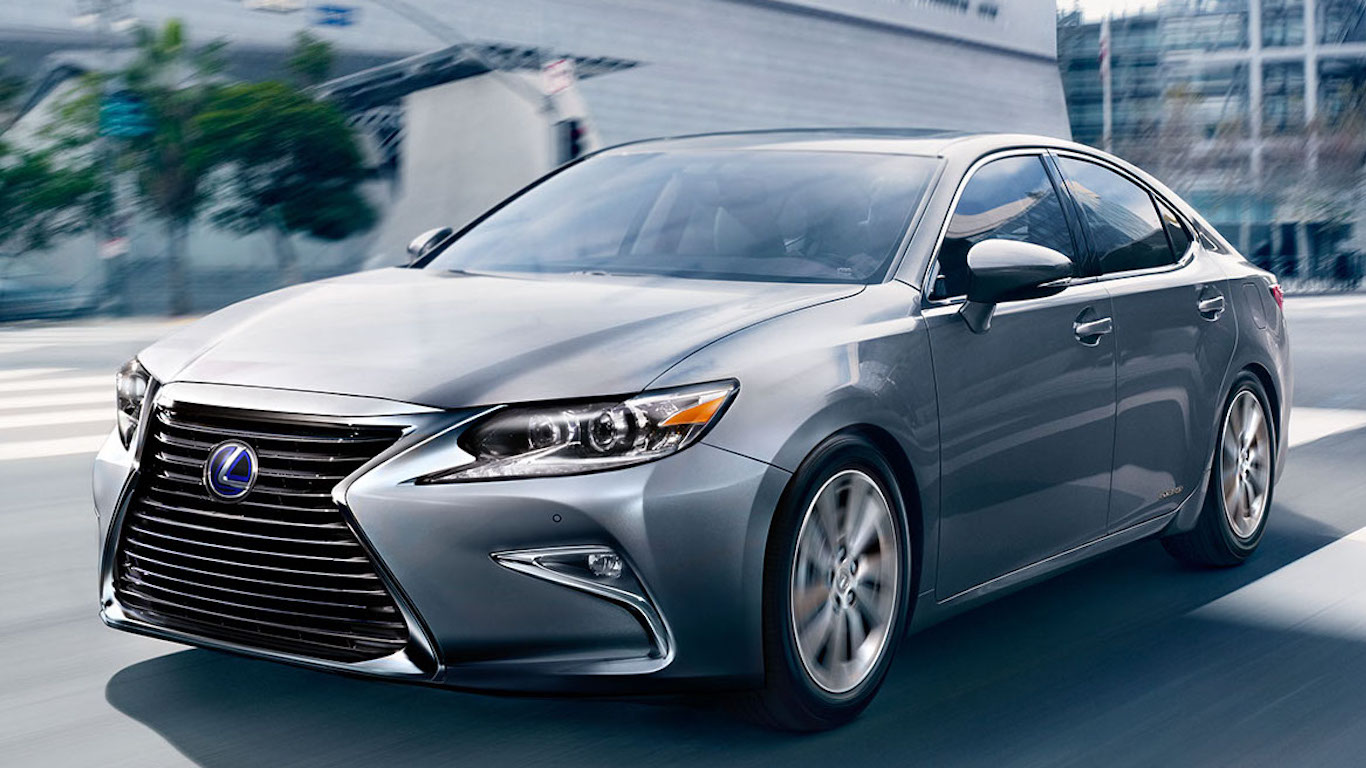
23. Lexus ES 300h 4dr
> Annual average cost to insurer: $1,280
> Annual average collision cost to insurer: $639
> Type: Midsize luxury car
> Current model retail price: $41,560 – $45,210
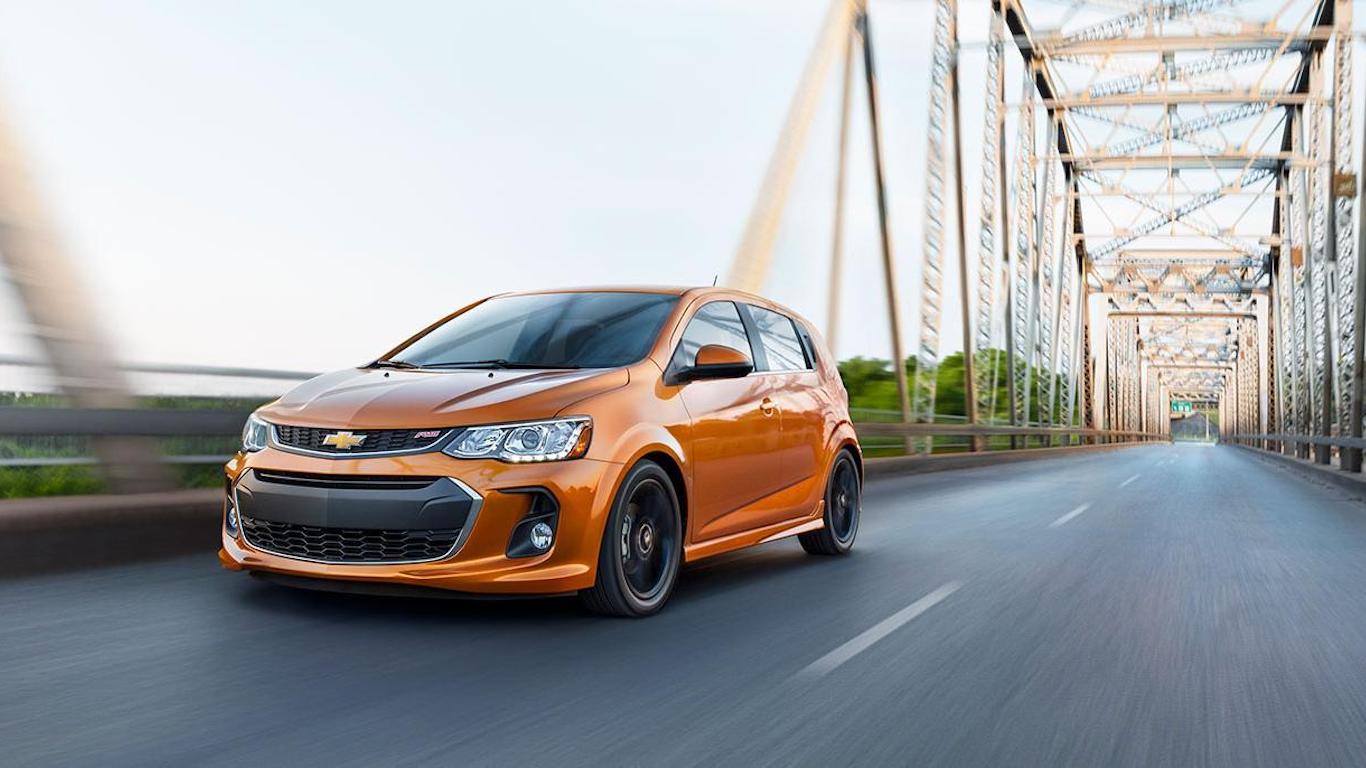
22. Chevrolet Sonic
> Annual average cost to insurer: $1,282
> Annual average collision cost to insurer: $452
> Type: Small four-door
> Current model retail price: $15,420 – $20,720
[in-text-ad-2]
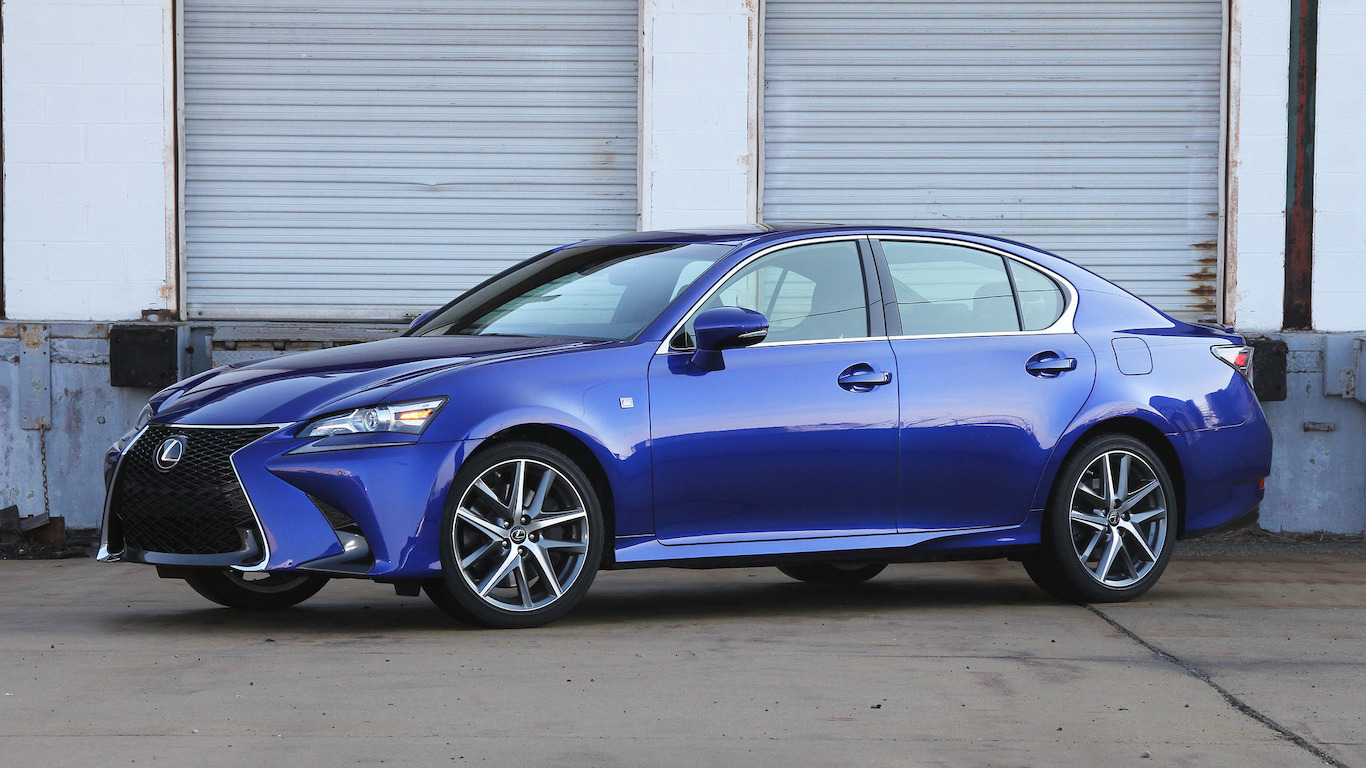
21. Lexus GS 350 4dr
> Annual average cost to insurer: $1,288
> Annual average collision cost to insurer: $660
> Type: Large luxury car
> Current model retail price: $50,915-$54,355
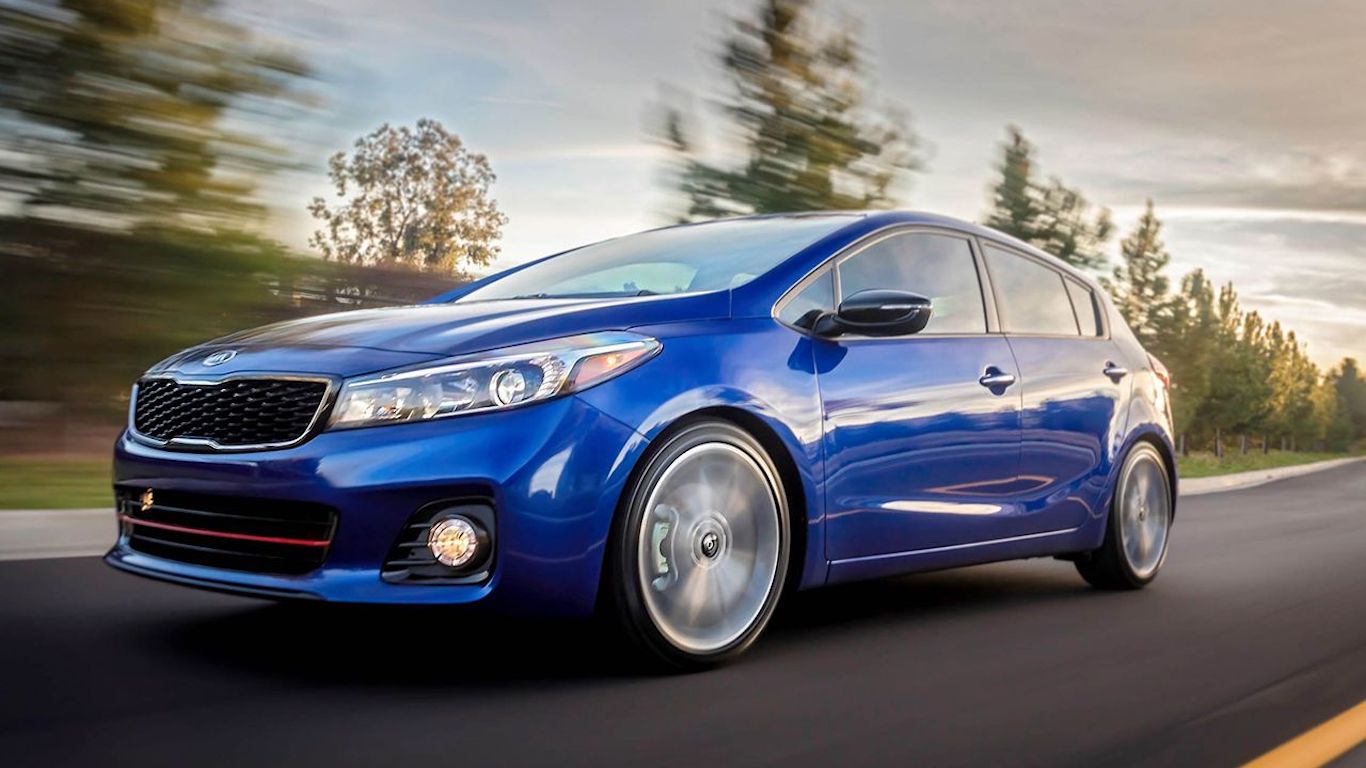
20. Kia Forte
> Annual average cost to insurer: $1,289
> Annual average collision cost to insurer: $461
> Type: Small four-door
> Current model retail price: $17,790 – $21,990
[in-text-ad]
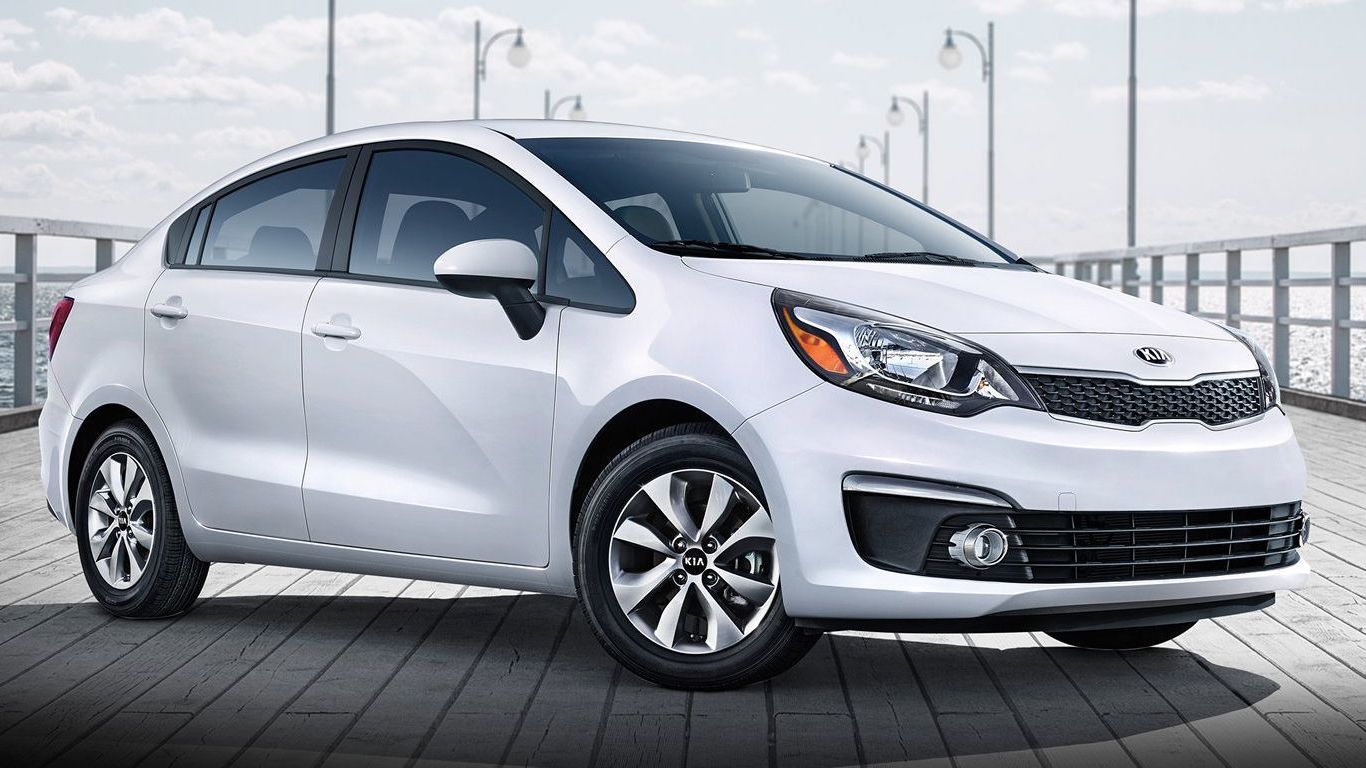
19. Kia Rio
> Annual average cost to insurer: $1,295
> Annual average collision cost to insurer: $436
> Type: Mini four-door
> Current model retail price: $15,390 – $16,190
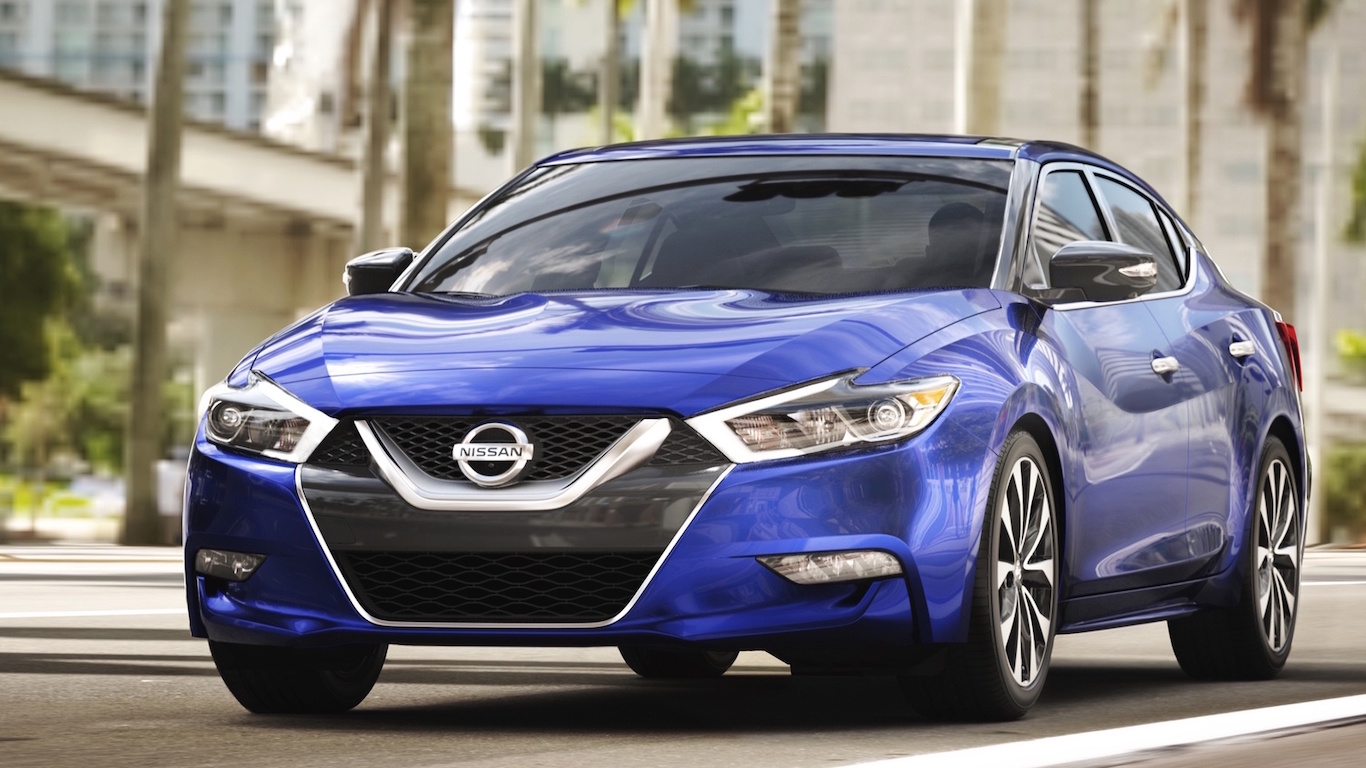
18. Nissan Maxima
> Annual average cost to insurer: $1,314
> Annual average collision cost to insurer: $623
> Type: Midsize four-door
> Current model retail price: $34,050 – $41,540
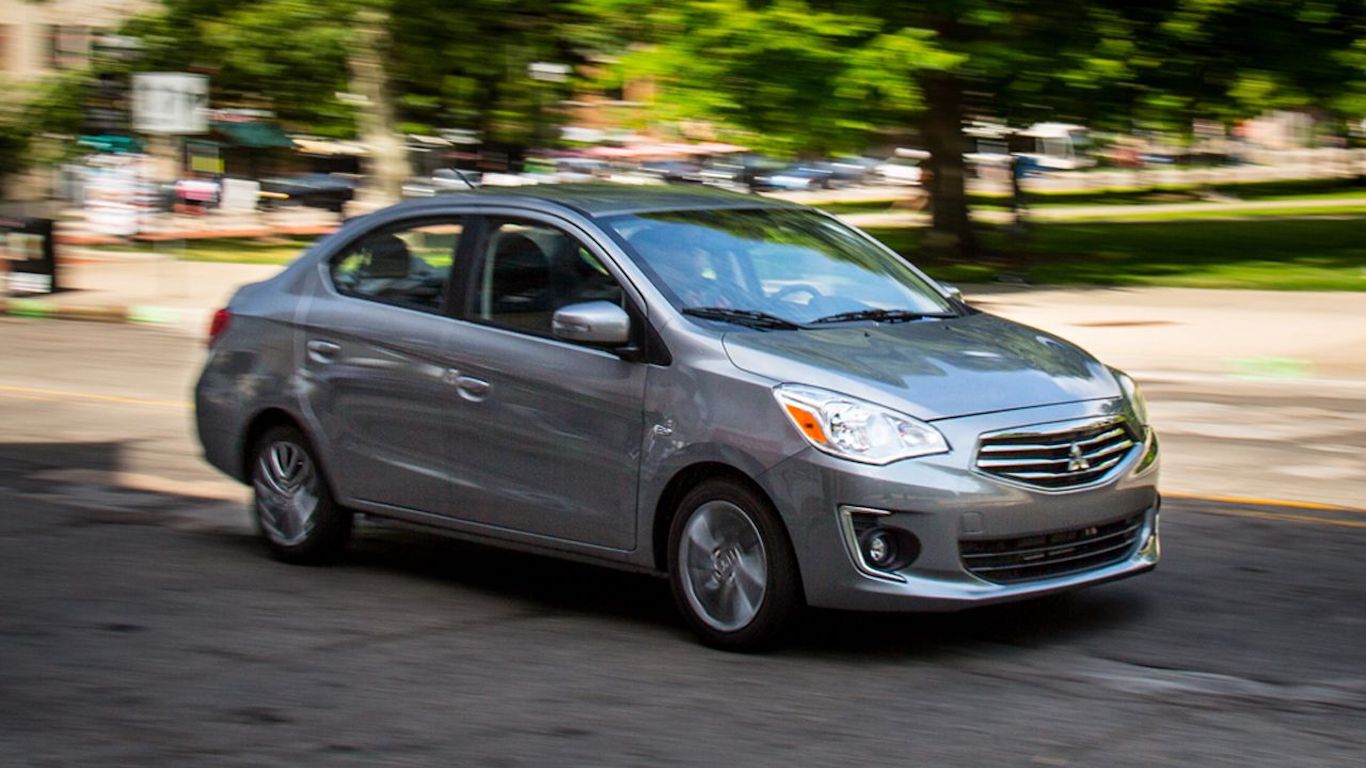
17. Mitsubishi Mirage
> Annual average cost to insurer: $1,317
> Annual average collision cost to insurer: $486
> Type: Micro four-door
> Current model retail price: $13,795 – $16,995
[in-text-ad-2]
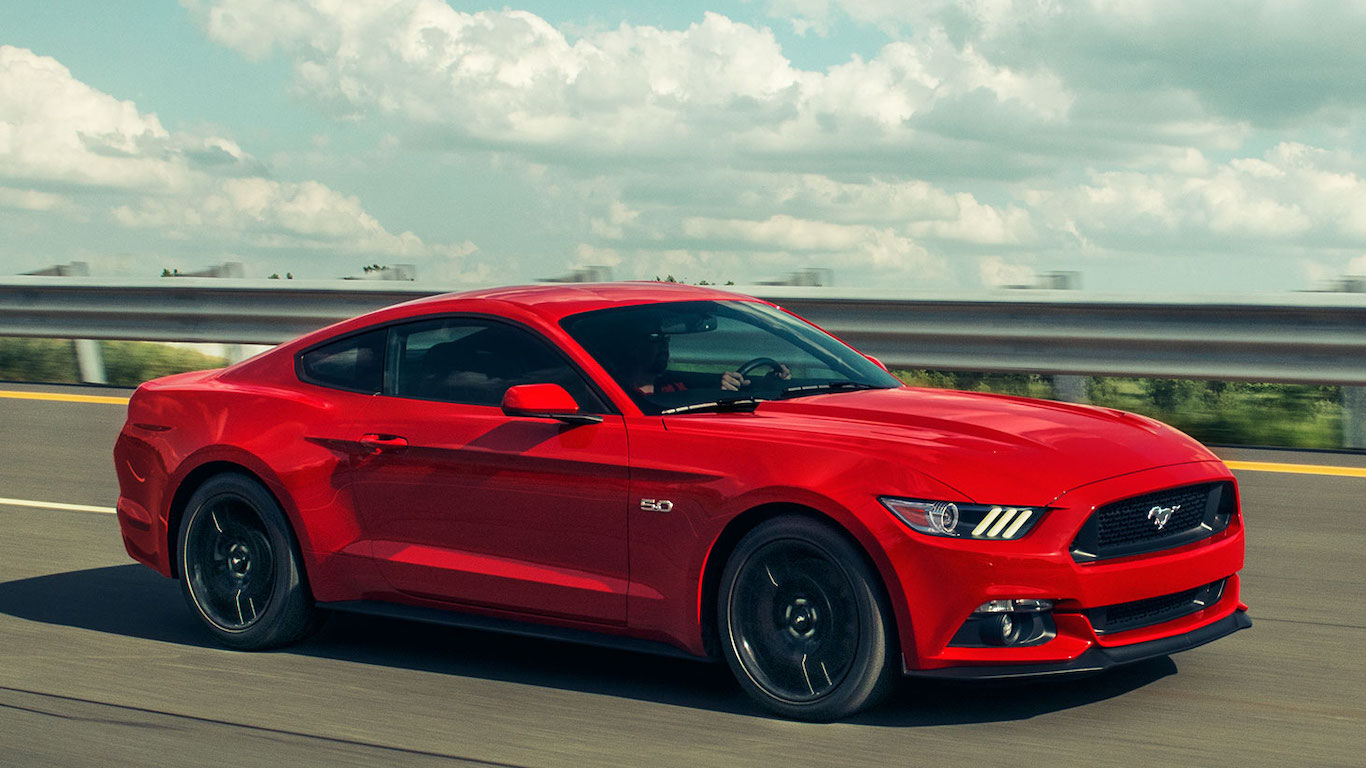
16. Ford Mustang 2dr
> Annual average cost to insurer: $1,333
> Annual average collision cost to insurer: $685
> Type: Midsize sports car
> Current model retail price: $26,395 – $46,595
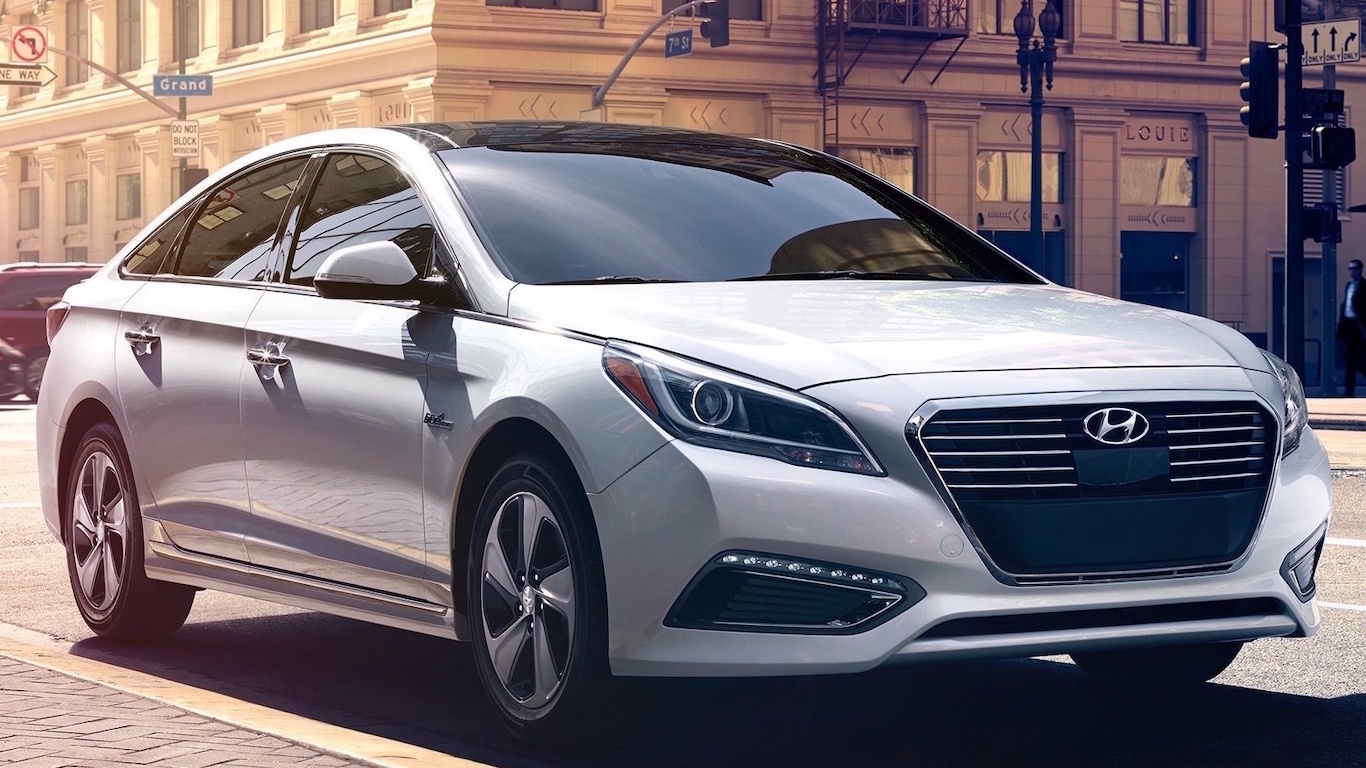
15. Hyundai Sonata hybrid
> Annual average cost to insurer: $1,352
> Annual average collision cost to insurer: $631
> Type: Midsize four-door
> Current model retail price: $25,750 – $31,300
[in-text-ad]
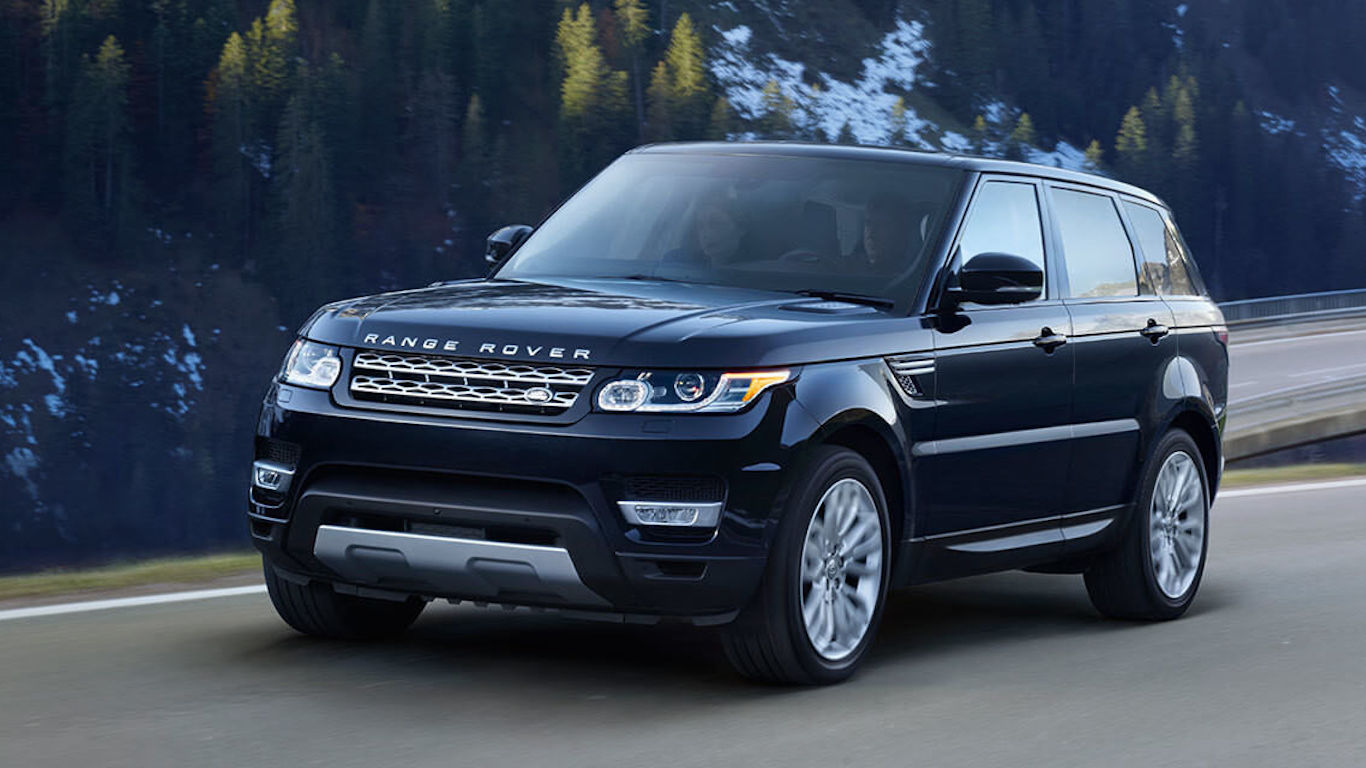
14. Land Rover Range Rover 4dr 4WD
> Annual average cost to insurer: $1,362
> Annual average collision cost to insurer: $685
> Type: Large luxury SUV
> Current model retail price: $89,160-$208,200
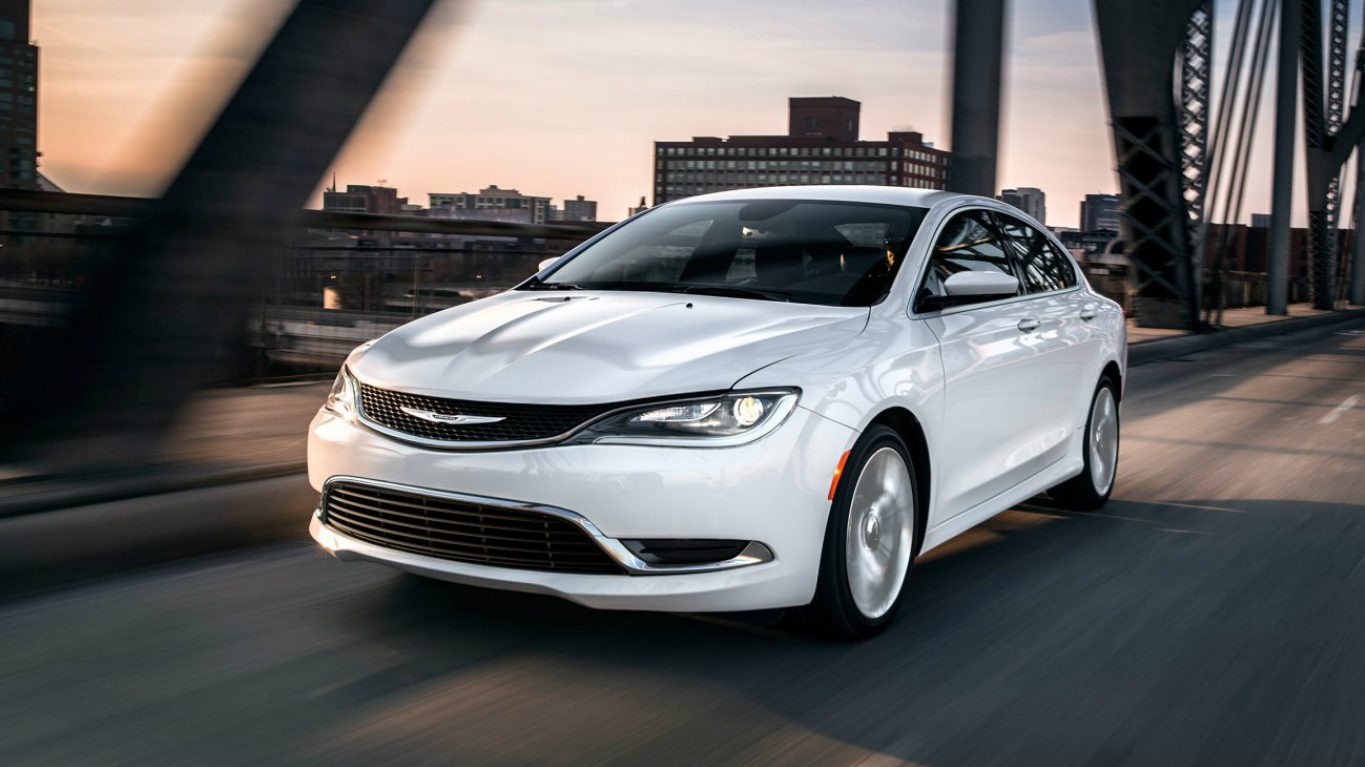
13. Chrysler 200
> Annual average cost to insurer: $1,365
> Annual average collision cost to insurer: $498
> Type: Midsize four-door
> Current model retail price: $10,995 – $15,961
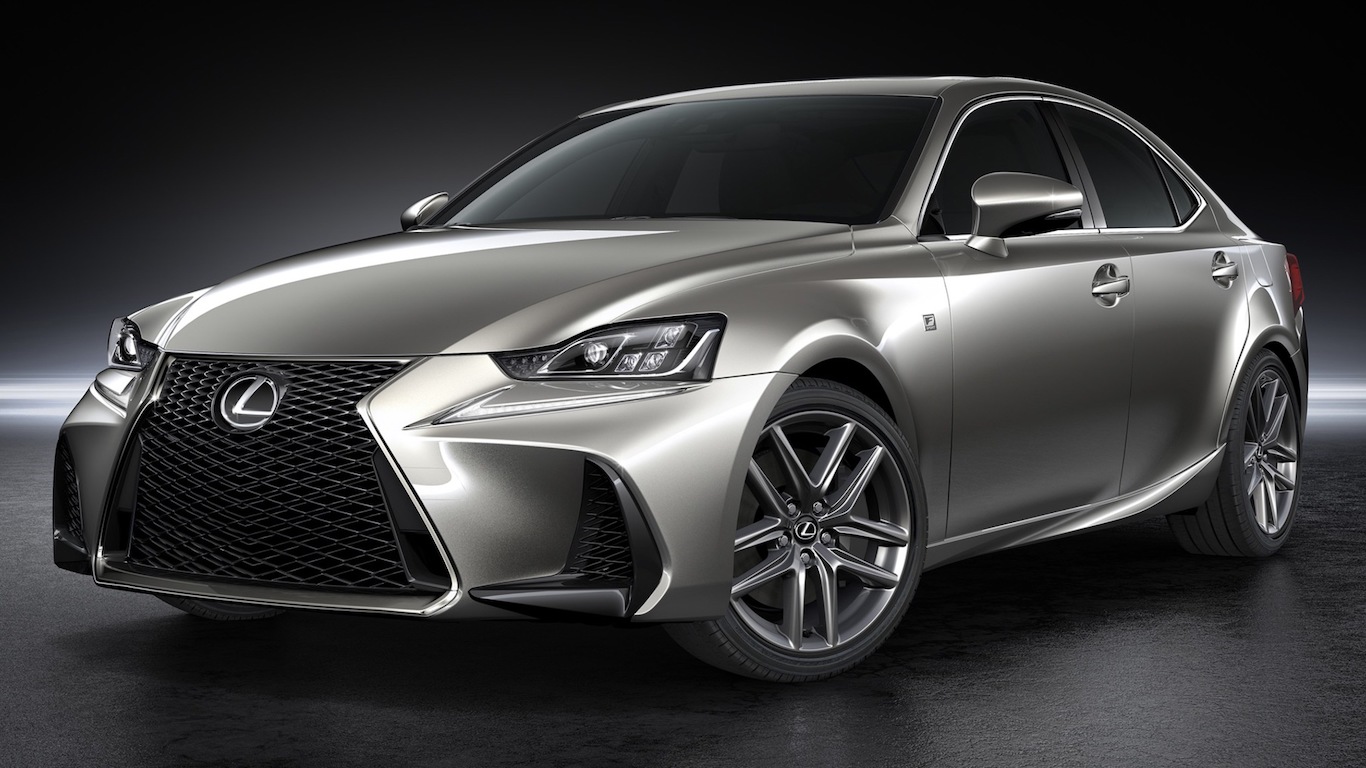
12. Lexus IS 200T 4dr
> Annual average cost to insurer: $1,371
> Annual average collision cost to insurer: $722
> Type: Midsize luxury car
> Current model retail price: $50,915 – $54,355
[in-text-ad-2]
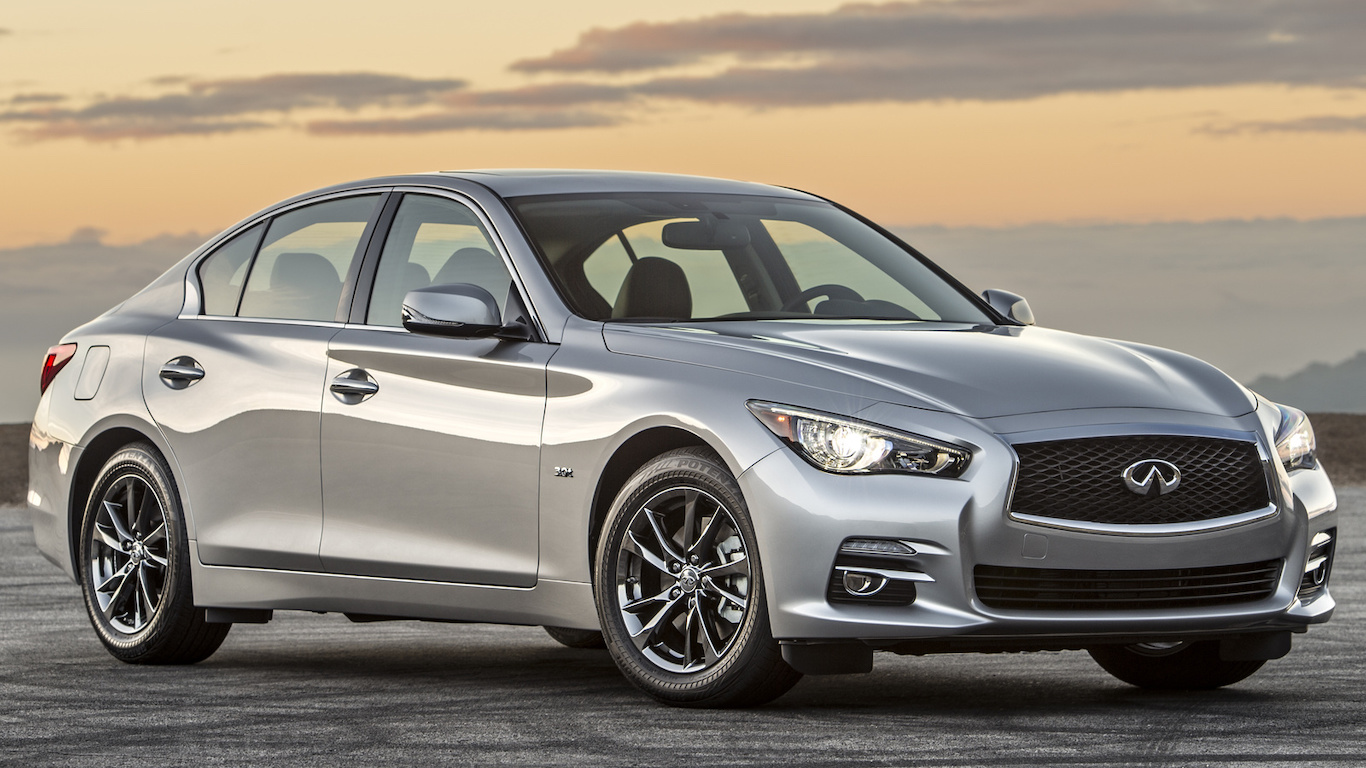
11. Infiniti Q50 4dr
> Annual average cost to insurer: $1,386
> Annual average collision cost to insurer: $668
> Type: Midsize luxury car
> Current model retail price: $35,650 – $53,350
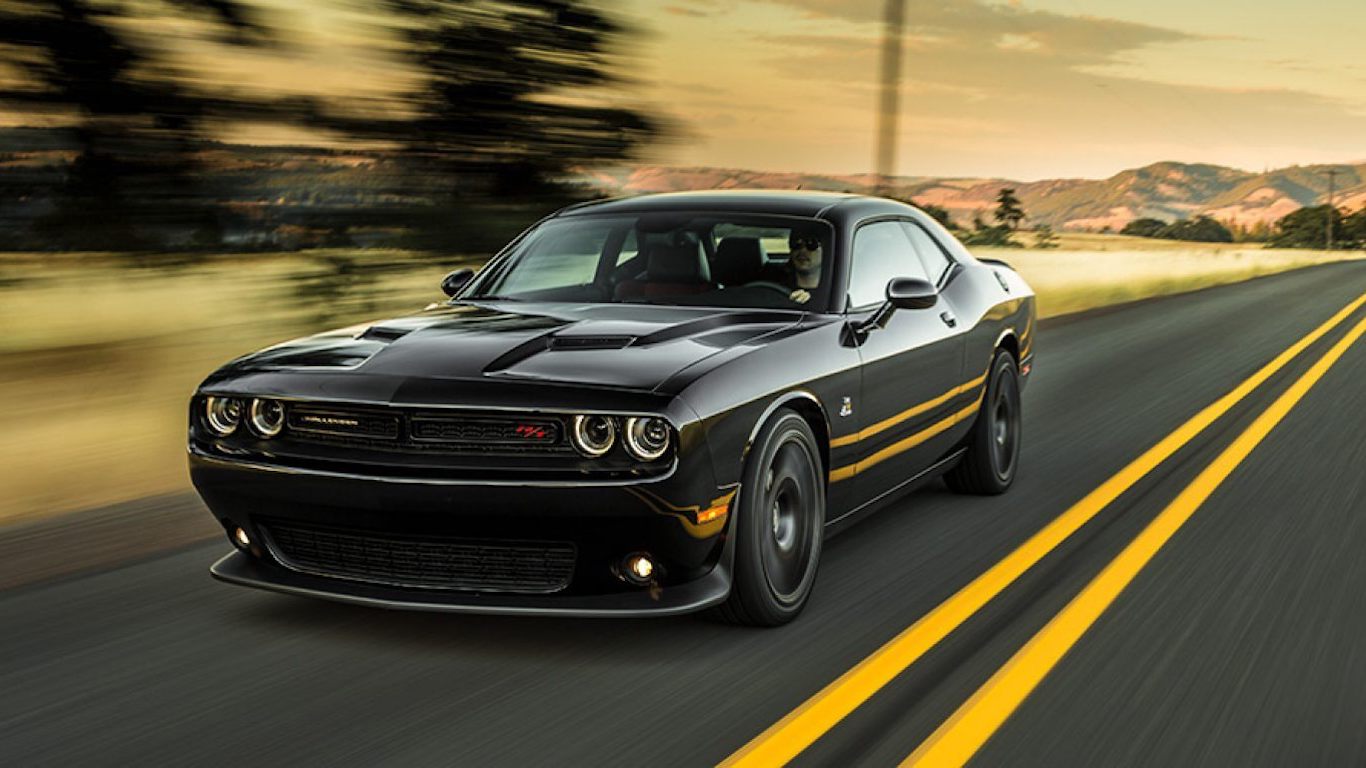
10. Dodge Challenger
> Annual average cost to insurer: $1,399
> Annual average collision cost to insurer: $652
> Type: Large two-door
> Current model retail price: $27,845 – $69,995
[in-text-ad]
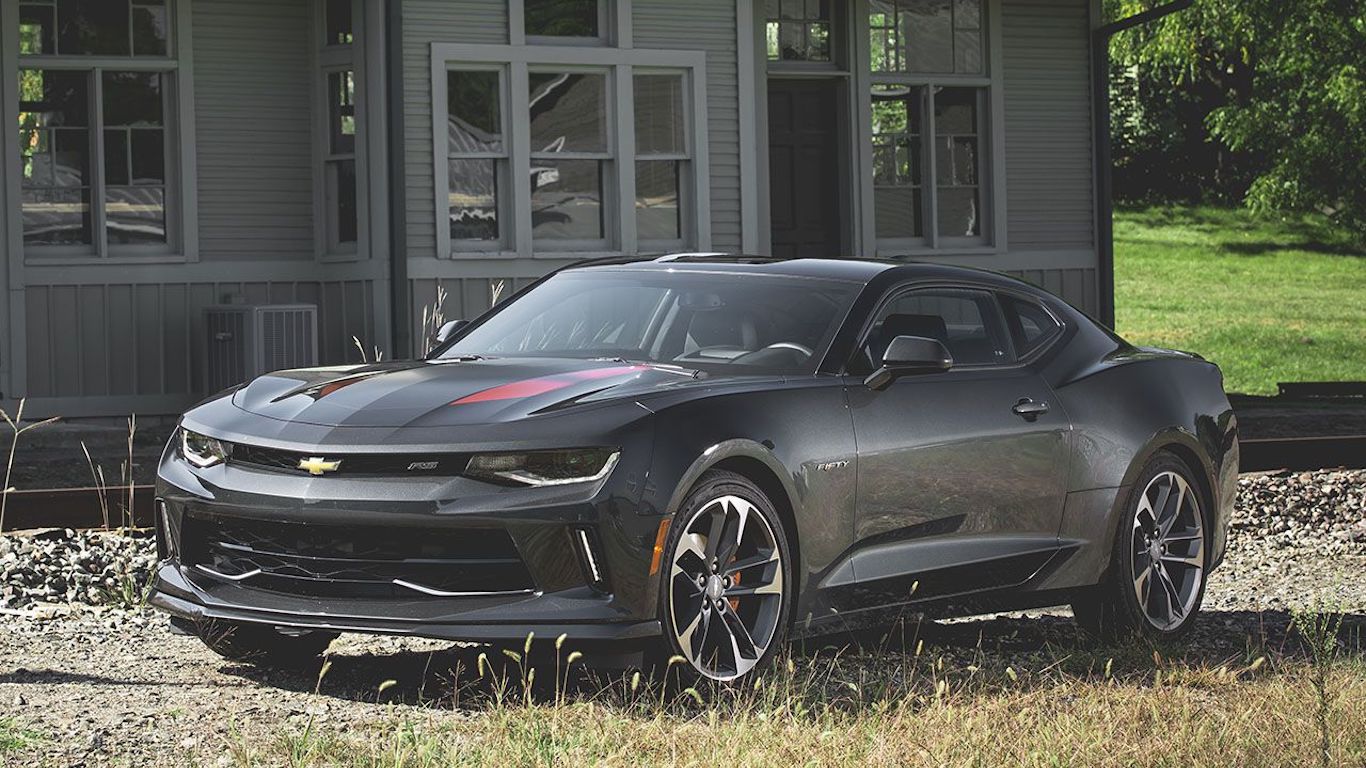
9. Chevrolet Camaro 2dr
> Annual average cost to insurer: $1,402
> Annual average collision cost to insurer: $730
> Type: Large sports car
> Current model retail price: $25,000 – $62,000
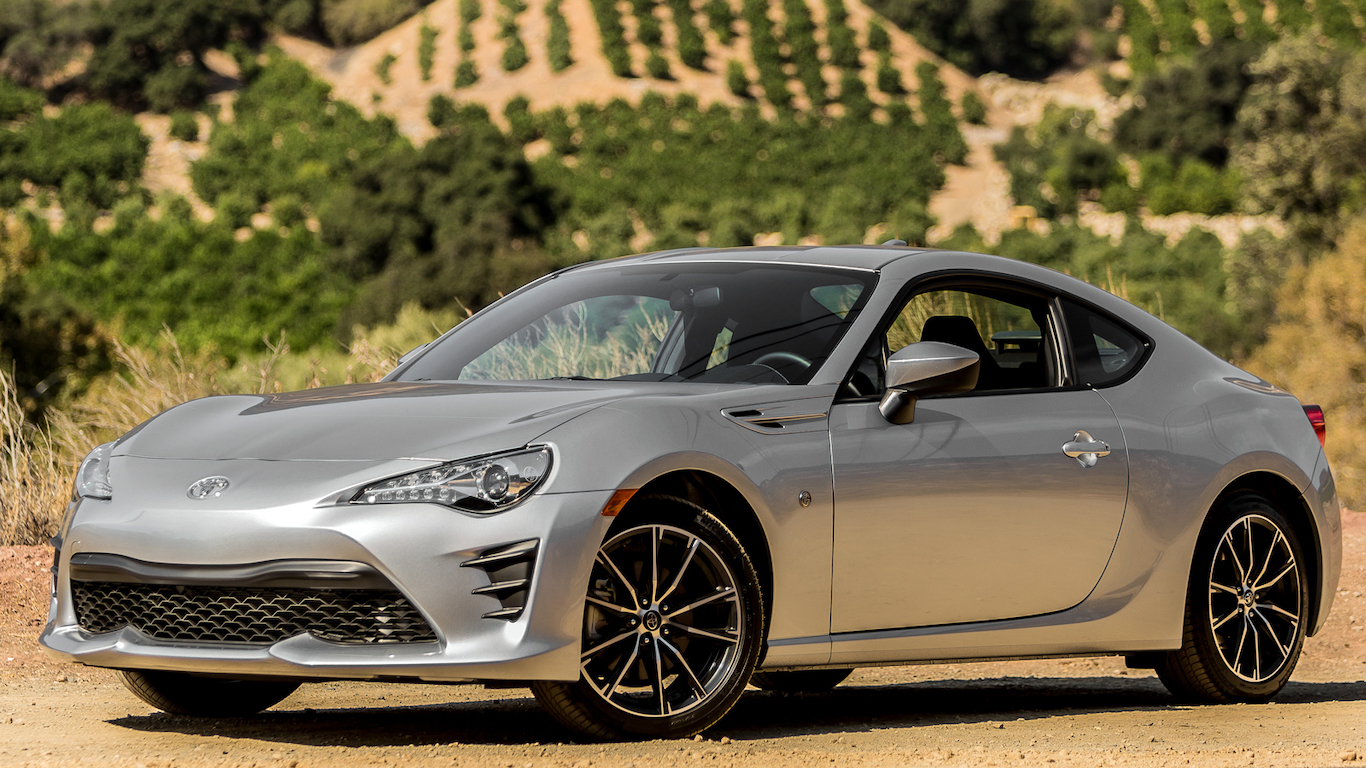
8. Scion/Toyota FR-S/86 series
> Annual average cost to insurer: $1,447
> Annual average collision cost to insurer: $772
> Type: Small two-door
> Current model retail price: $26,655-$32,420
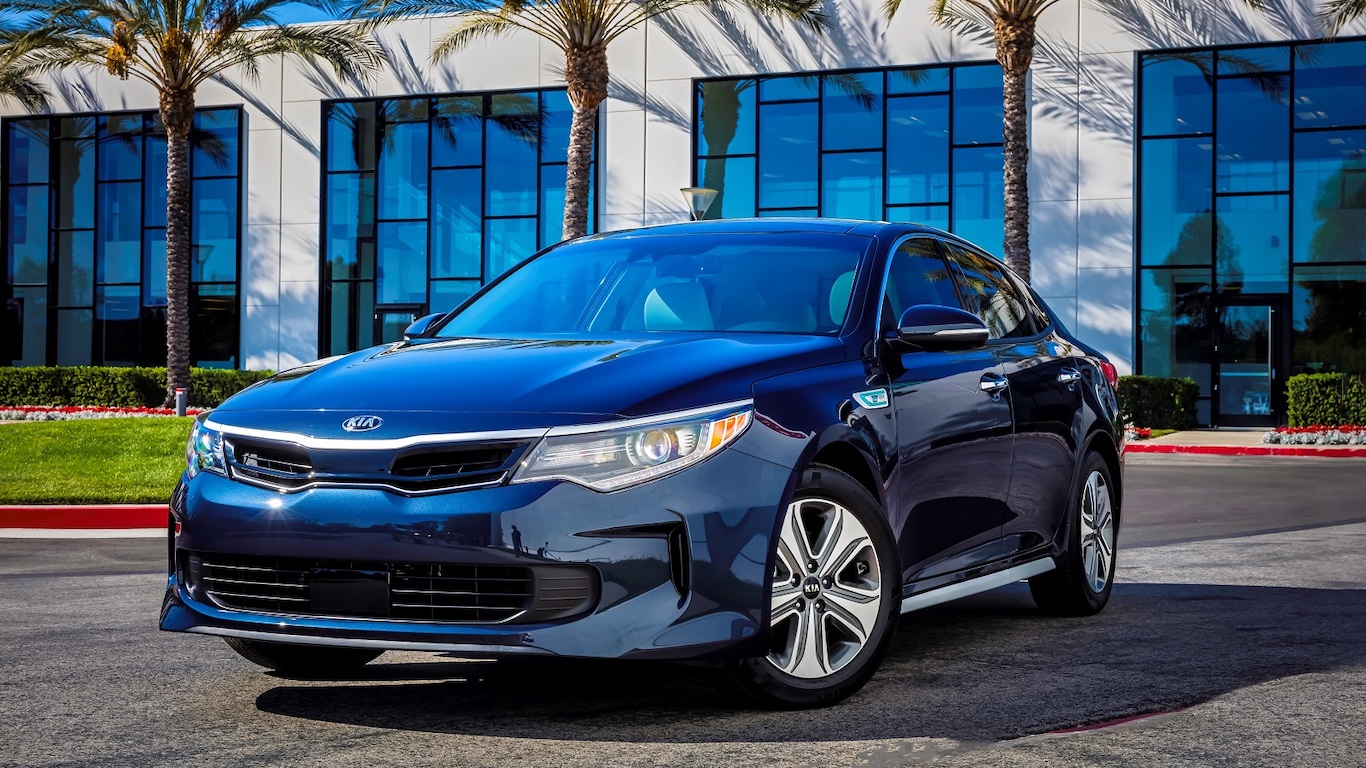
7. Kia Optima Hybrid
> Annual average cost to insurer: $1,475
> Annual average collision cost to insurer: $631
> Type: Midsize four-door
> Current model retail price: $28,090
[in-text-ad-2]
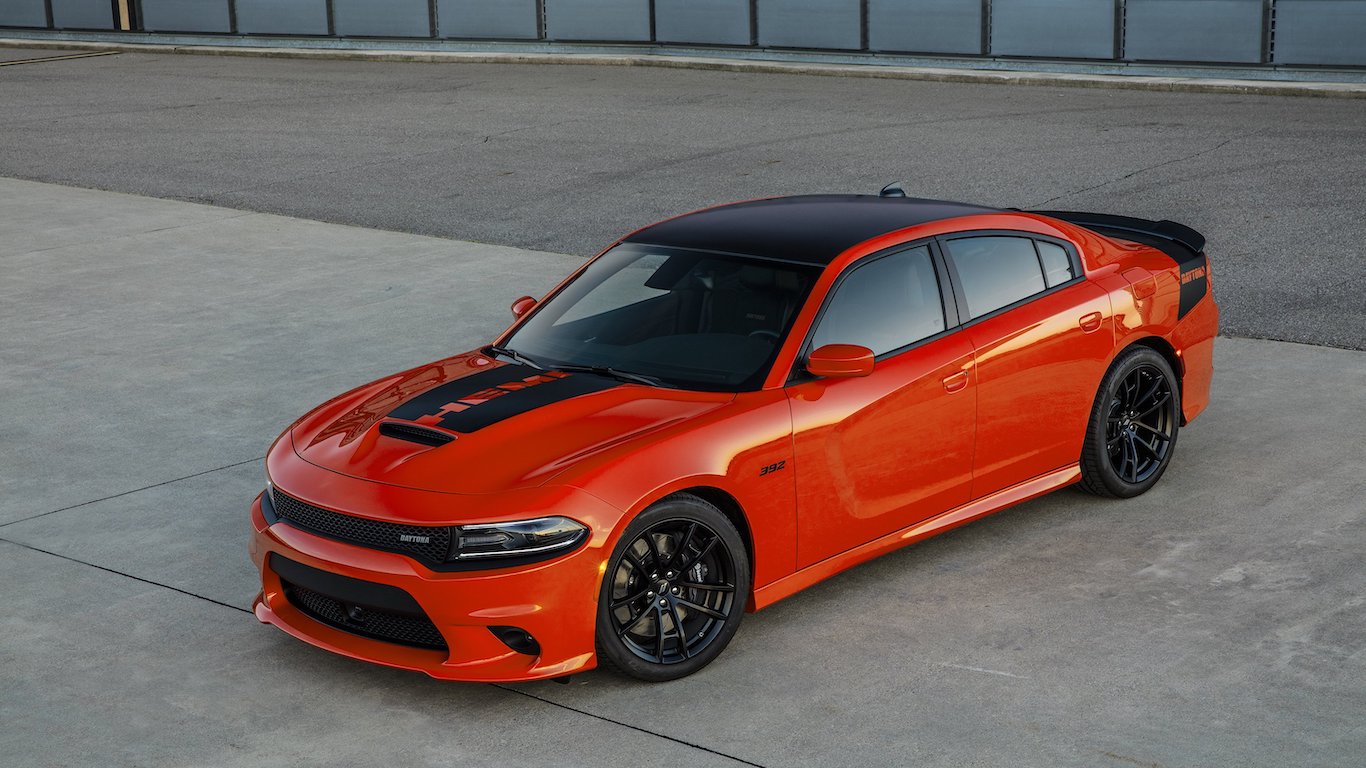
6. Dodge Charger HEMI
> Annual average cost to insurer: $1,475
> Annual average collision cost to insurer: $706
> Type: Large four-door
> Current model retail price: $29,220-$65,545
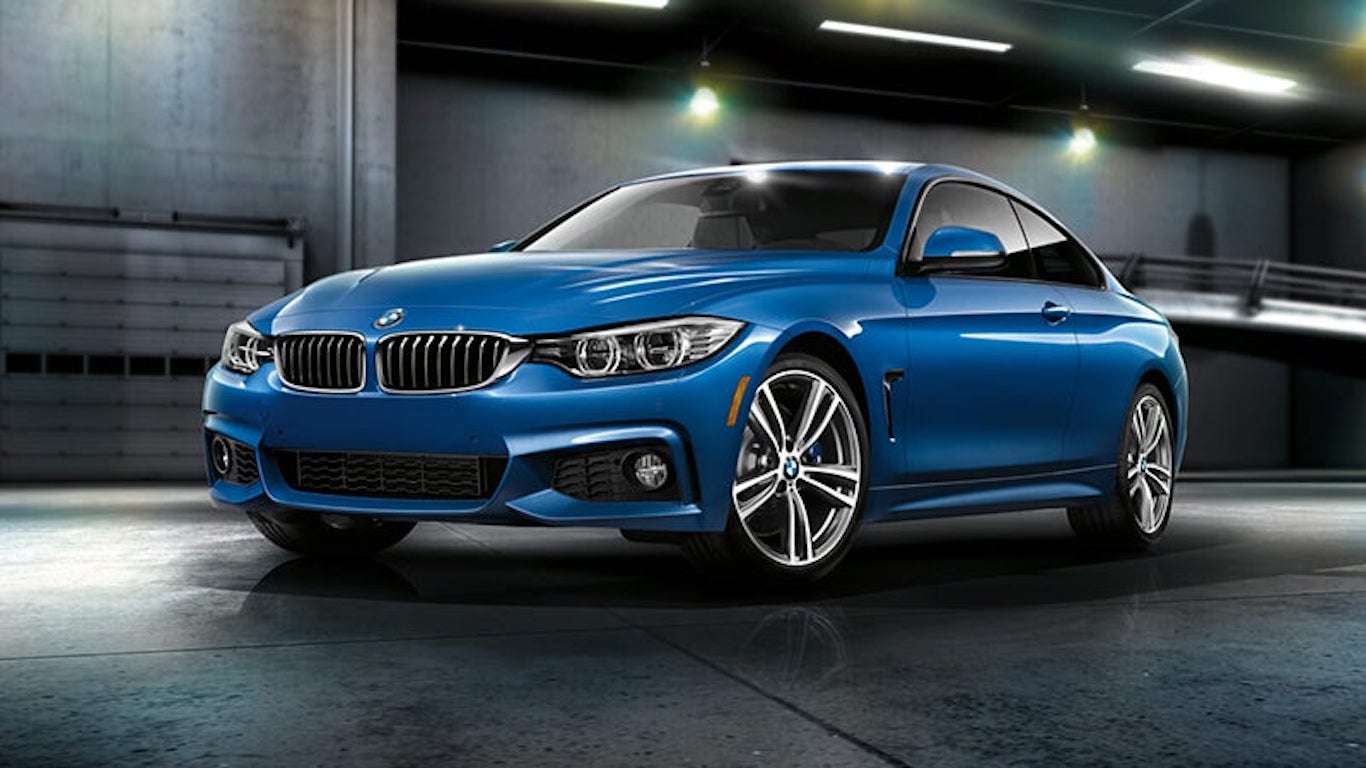
5. BMW 4 Series 2dr
> Annual average cost to insurer: $1,485
> Annual average collision cost to insurer: $735
> Type: Midsize luxury car
> Current model retail price: $44,800 – $53,200
[in-text-ad]
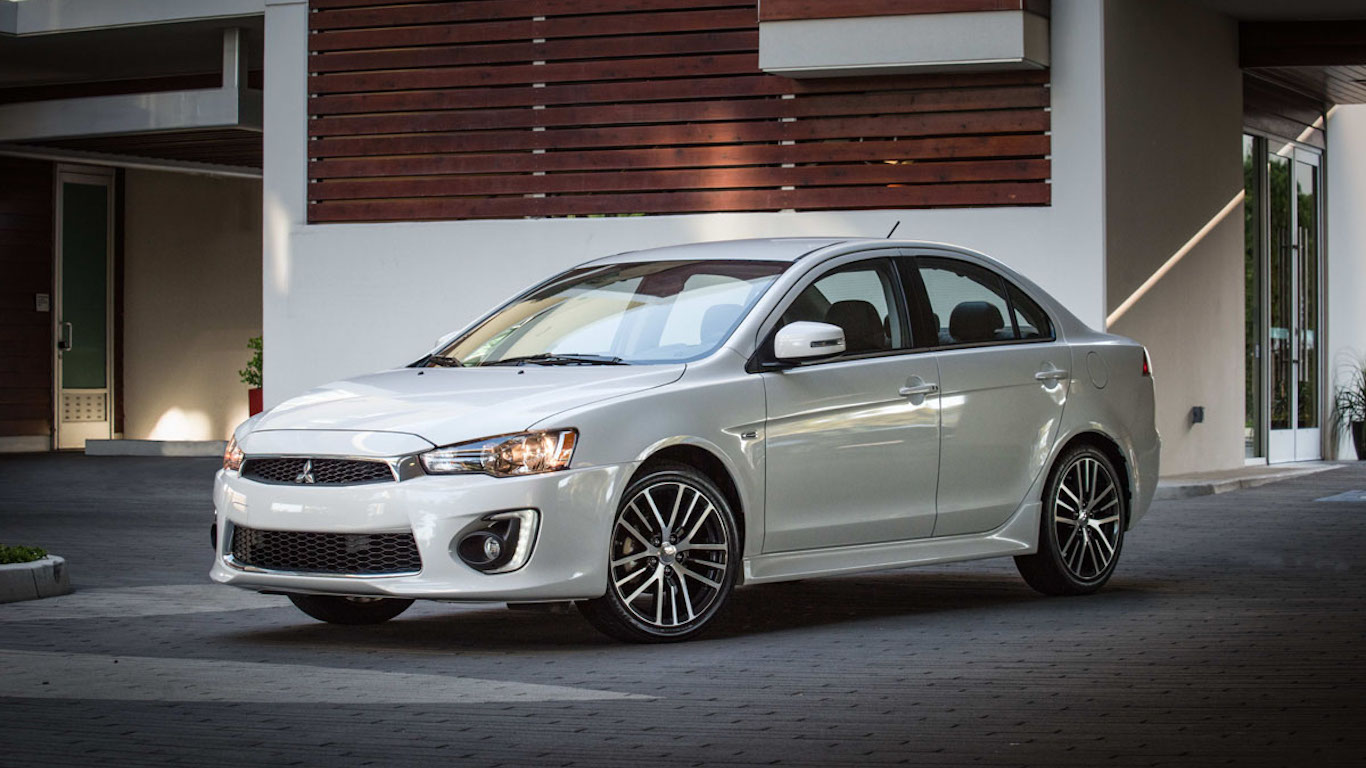
4. Mitsubishi Lancer
> Annual average cost to insurer: $1,556
> Annual average collision cost to insurer: $602
> Type: Small four-door
> Current model retail price: $9,995 – $15,499
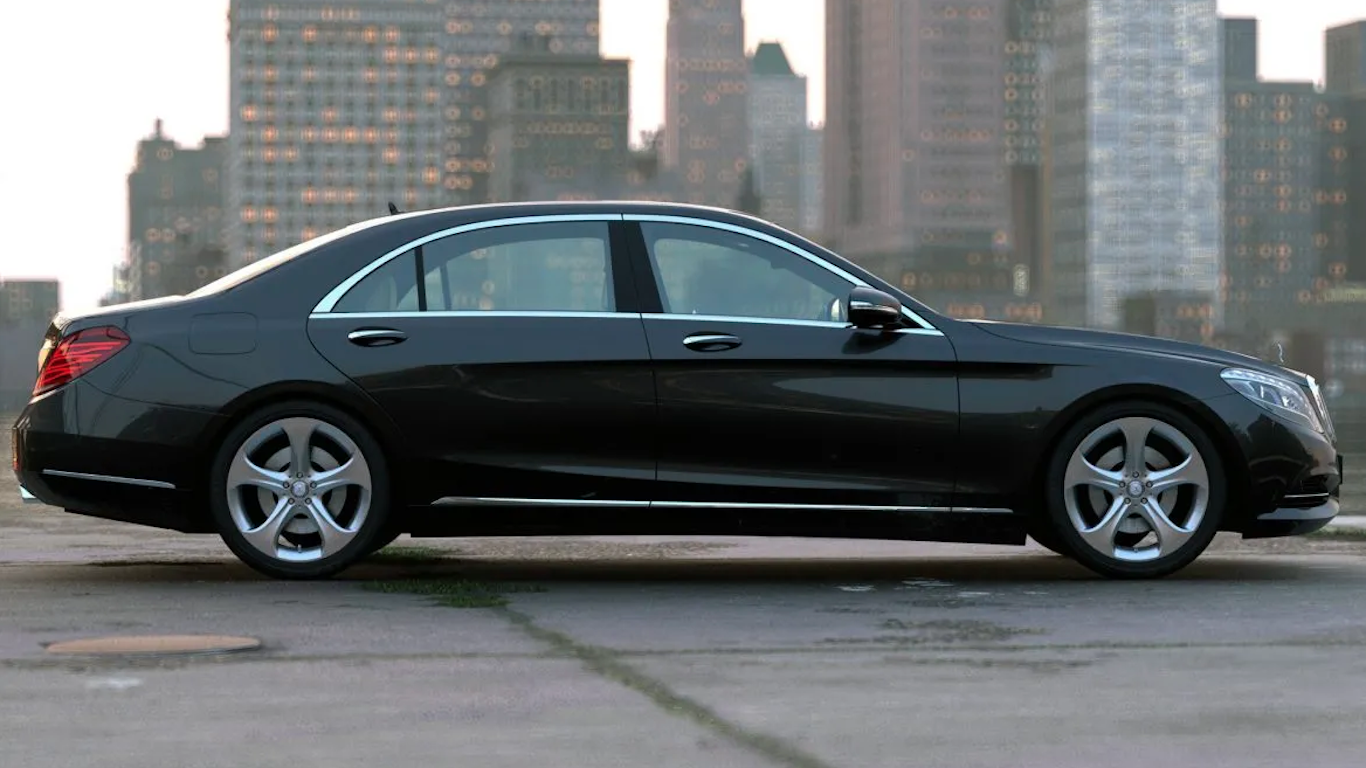
3. Mercedes-Benz S-Class 4dr LWB
> Annual average cost to insurer: $1,783
> Annual average collision cost to insurer: $876
> Type: Very large luxury car
> Current model retail price: $89,900 – $229,500
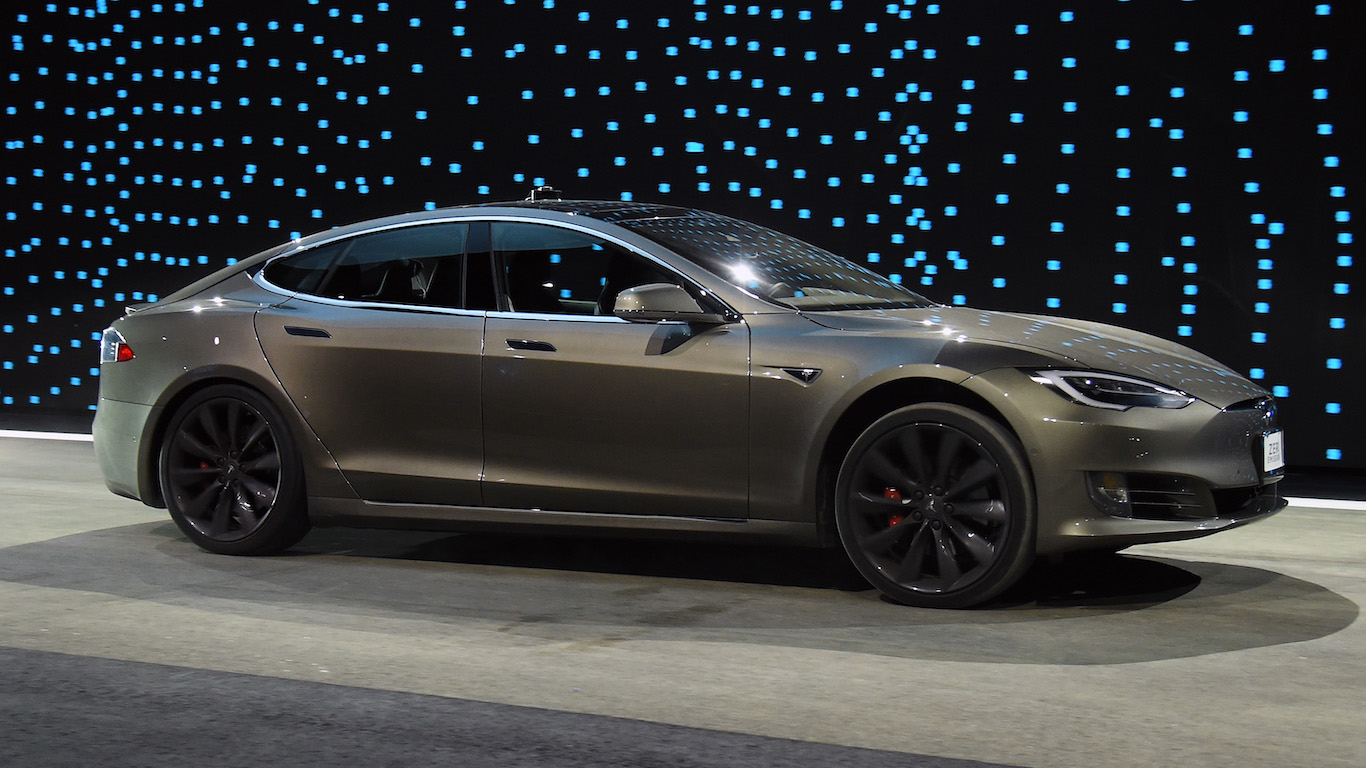
2. Tesla Model S 4dr Electric 4WD
> Annual average cost to insurer: $1,866
> Annual average collision cost to insurer: $1,291
> Type: Large luxury car
> Current model retail price: $71,000
[in-text-ad-2]
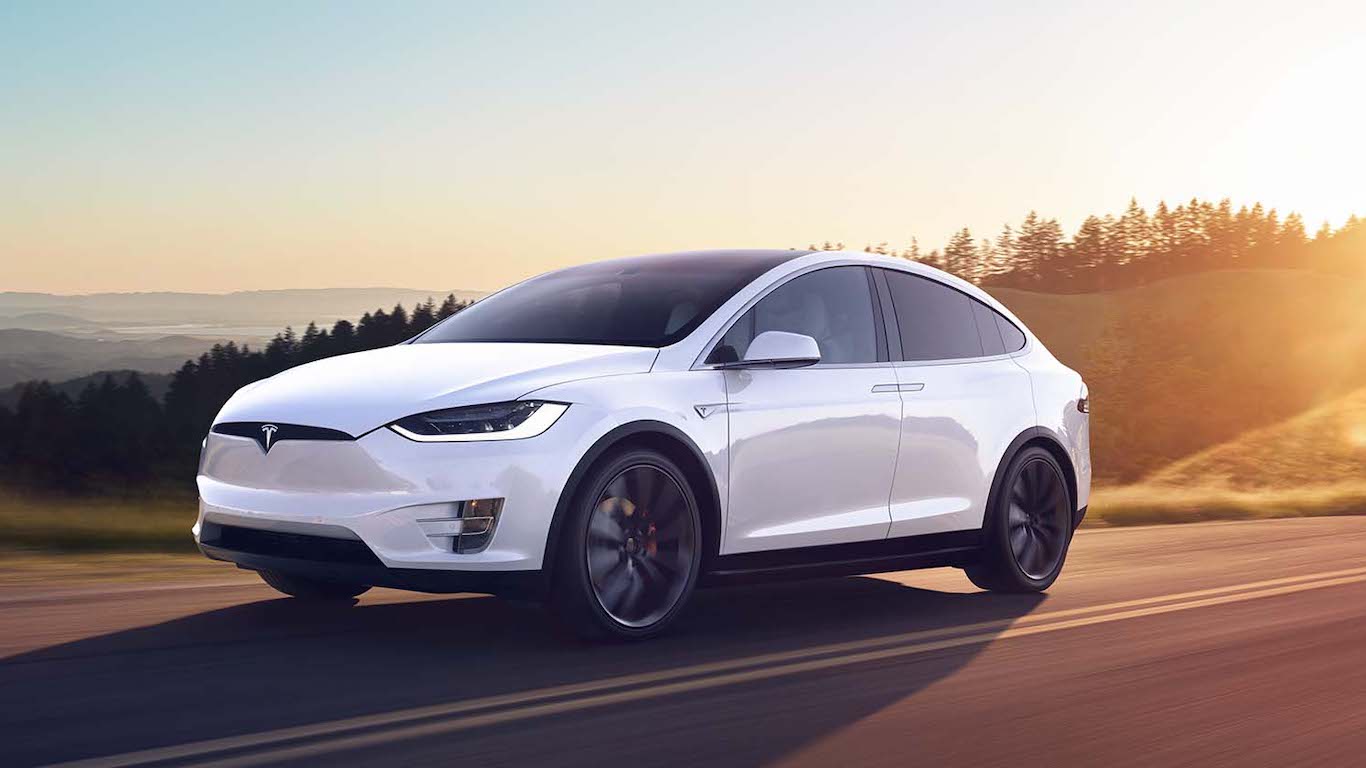
1. Tesla Model X 4dr Electric 4WD
> Annual average cost to insurer: $1,909
> Annual average collision cost to insurer: $1,328
> Type: Large luxury SUV
> Current model retail price: $87,000
Methodology
To determine the 25 cars with the highest insurance costs, 24/7 Wall St. reviewed data on insurance claim payments made by insurers by make and model from the Insurance Institute for Highway Safety, a nonprofit research organization funded by auto insurers. The costs include six types of insurance: collision, property damage, comprehensive, personal injury, medical payment, and bodily injury. The model that is most expensive to insure has the highest overall average cost to the insurer per year. These data are for 596 vehicles of 2015-2017 model years sold in the United States. Average annual insurance payments account for both the frequency of accidents as well as the average payment made by model. The IIHS breaks down the data for models to sometimes include certain safety-relevant features, such as all-wheel drive and driver assistance technology. To avoid repetition, each model nameplate is listed only once, and the more expensive version to insure is always listed. We also excluded those vehicles where a relative cost figure was not included by the IIHS for all six payout categories.
The current retail model price range came from auto industry data resources Edmunds and Kelley Blue Book. Some of the models on this list have been discontinued, and in those cases, the most recently available resale value of a previous model year is listed.
Take Charge of Your Retirement: Find the Right Financial Advisor For You in Minutes (Sponsor)
Retirement planning doesn’t have to feel overwhelming. The key is finding professional guidance—and we’ve made it easier than ever for you to connect with the right financial advisor for your unique needs.
Here’s how it works:
1️ Answer a Few Simple Questions
Tell us a bit about your goals and preferences—it only takes a few minutes!
2️ Get Your Top Advisor Matches
This tool matches you with qualified advisors who specialize in helping people like you achieve financial success.
3️ Choose Your Best Fit
Review their profiles, schedule an introductory meeting, and select the advisor who feels right for you.
Why wait? Start building the retirement you’ve always dreamed of. Click here to get started today!
Thank you for reading! Have some feedback for us?
Contact the 24/7 Wall St. editorial team.
 24/7 Wall St.
24/7 Wall St.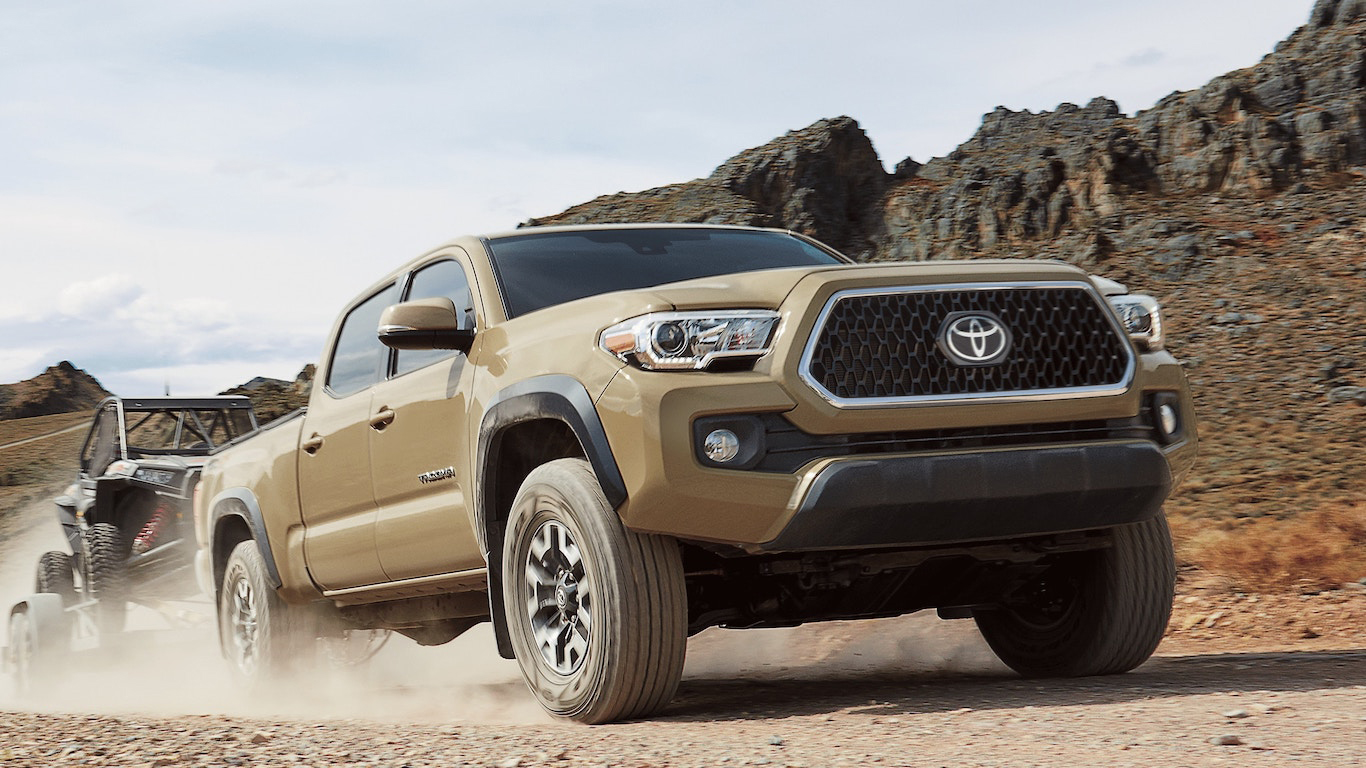 24/7 Wall St.
24/7 Wall St.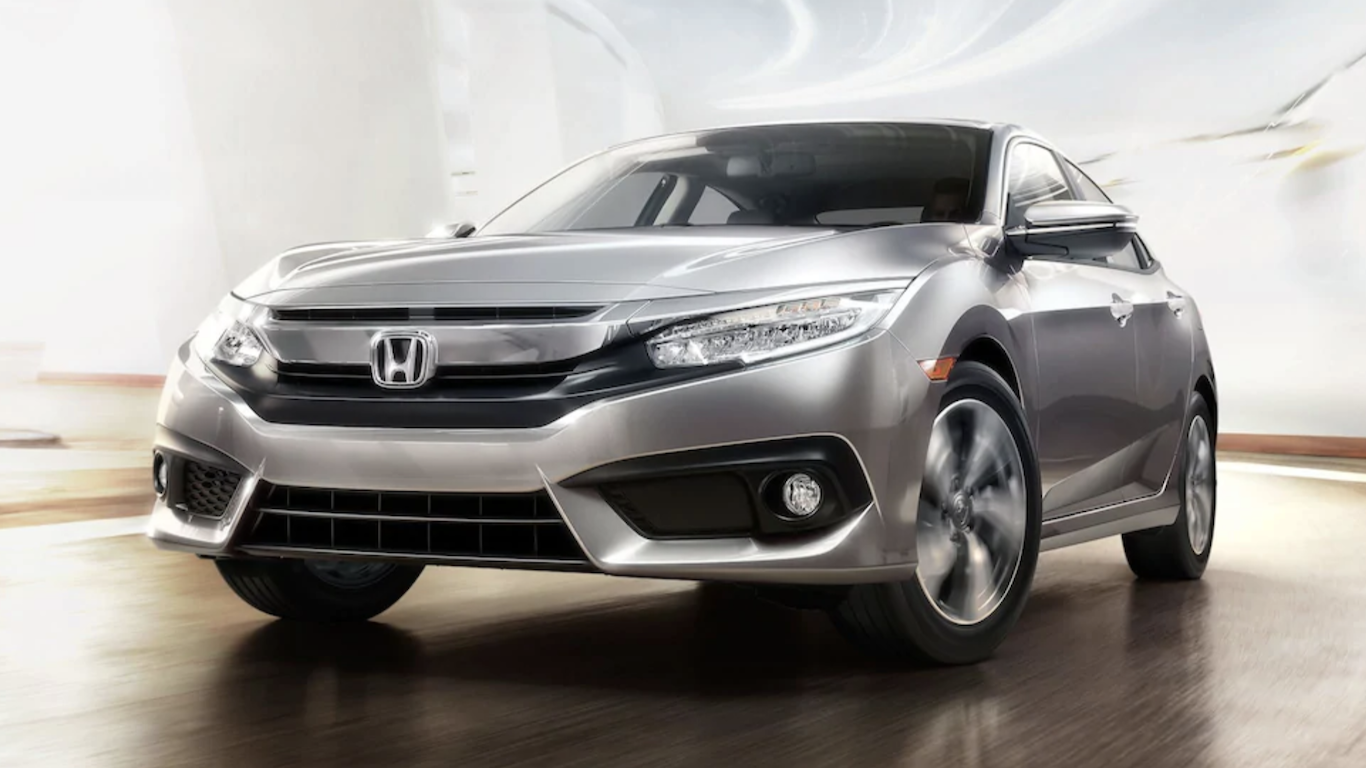 24/7 Wall St.
24/7 Wall St.



